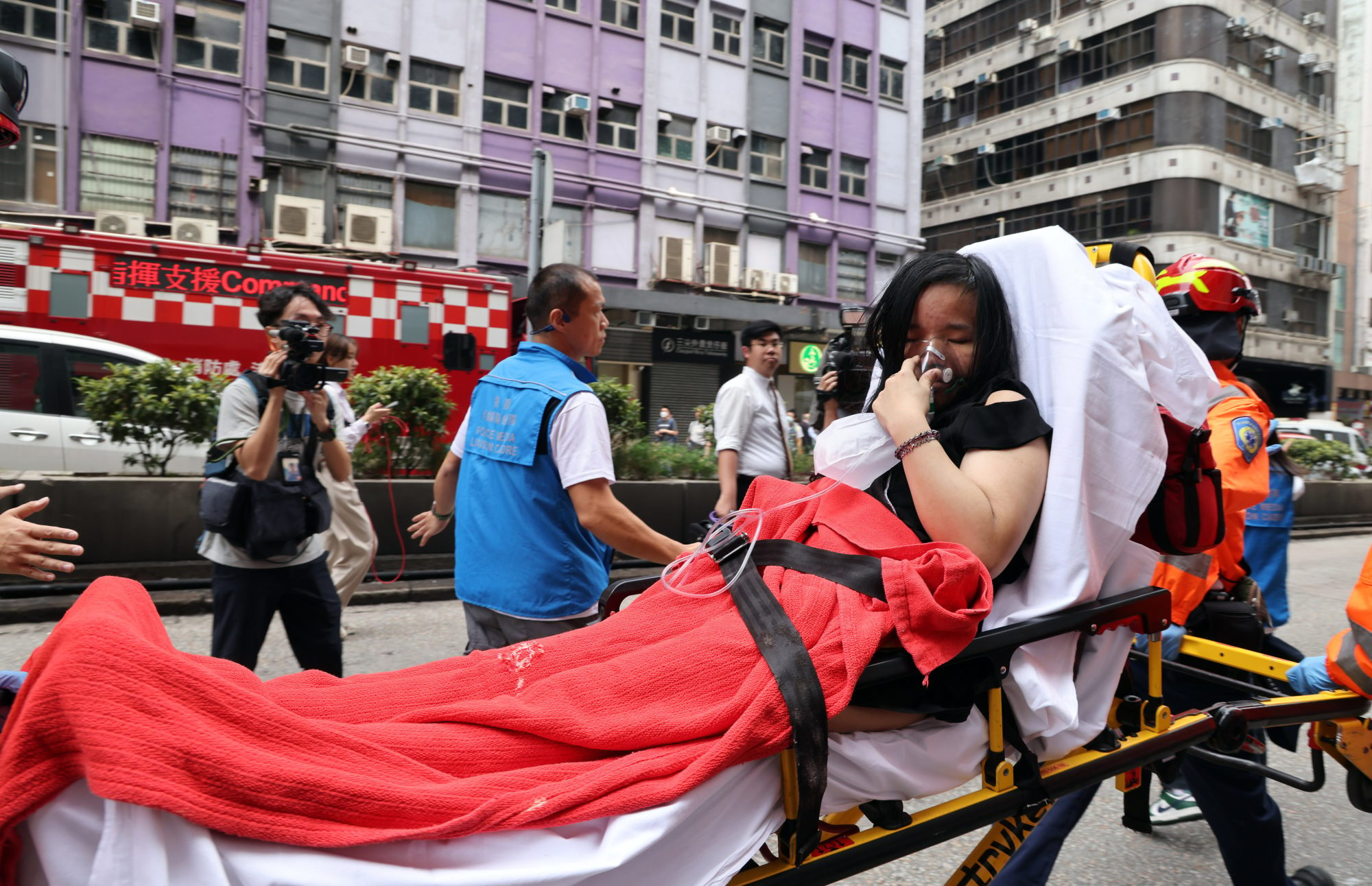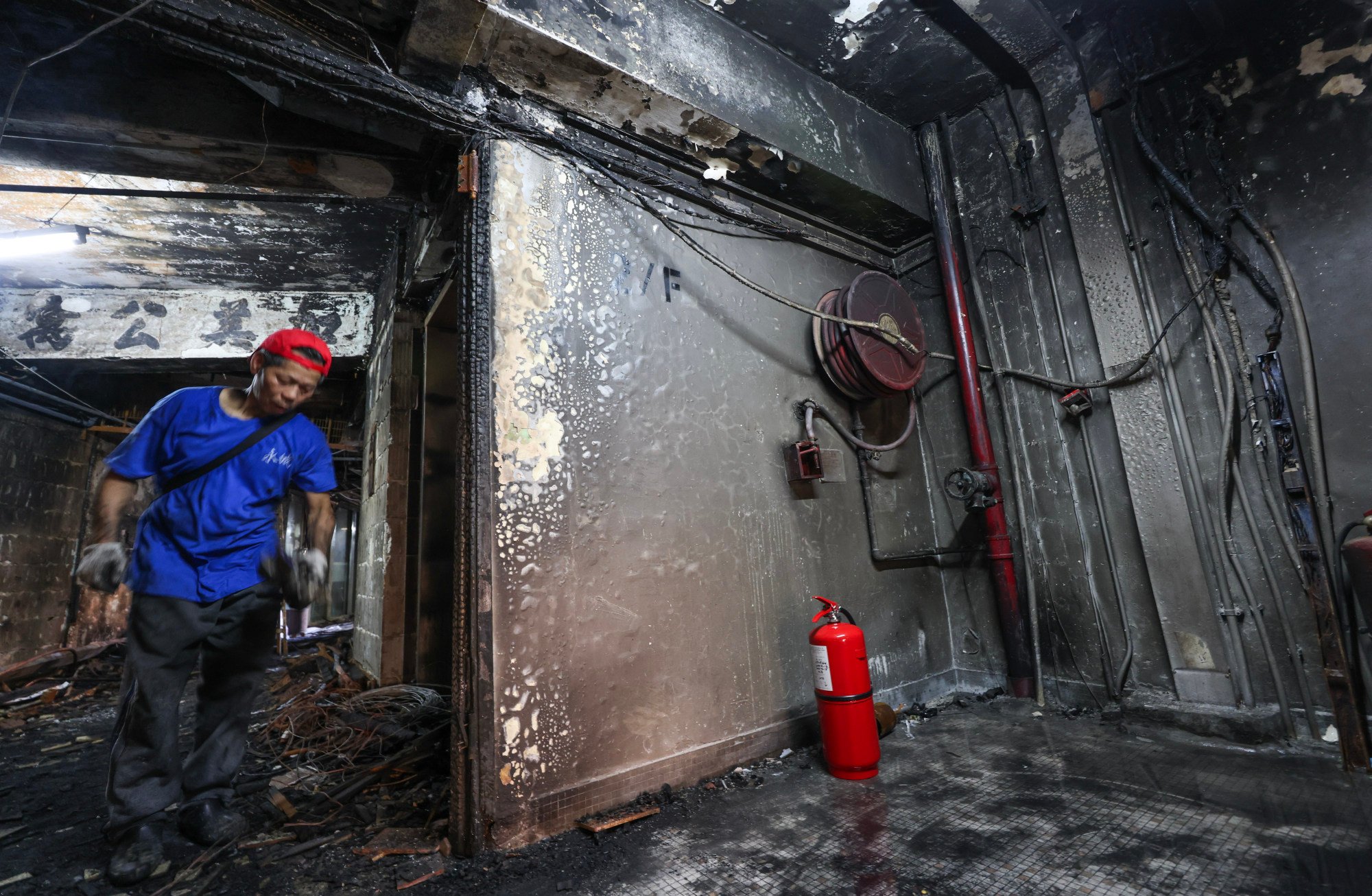While the amendment is intended to save lives and likely be passed in due course, it is only on paper and not enough to increase the compliance rate. Moreover, the amendment does not change the complex make-up of buildings such as New Lucky House. At the time of the fire, there were 300 residents of New Lucky House. By combing through various reports, we can get a rough idea of their demographics.

The five killed in the blaze were a 23-year-old Indonesian man who was a Hong Kong resident, a 24-year-old Indonesian woman who was also a local resident, 70-year-old Tsang Hing-wai who had left Hong Kong and probably stayed in the guest house after returning to the city, 67-year old local resident Lai Ka-lun and an unidentified woman. Both Indonesians worked jobs at The Ritz-Carlton.
Other residents mentioned include a 44-year-old surnamed Wong who works in the air-conditioning industry, 51-year-old Abdoh Rhattab who is a delivery worker, 39-year-old Salbiyah who is an asylum seeker, 60-year-old retiree Tam Yuk-ha and a 51-year-old surnamed Zhou who works in the service industry.
Some of them lived in the subdivided flats. One said she had been living in one such flat since 2007. There were also some overseas travellers living in the building. The chairwoman of the owners’ corporation was identified by her surname Yip. She is also a guest house operator. But it is unclear whether she lived in the building.
The commonality among these people, apart from the travellers who were just passing through, is that most of them are Hong Kong residents who are not financially well off. Passing the fire safety amendment will not change that.
As for the owners, Yip said, “there were many stakeholders. Nobody had the final say”, and that “different interests” had to be balanced. Passing the fire safety amendment will not soften those tensions.

Also, New Lucky House is an old building. The improvement work is costly. A revised quote from a fire safety consultancy company reached a staggering HK$30 million. If this were the amount that government must recover plus the surcharge, how long would it take for the government to get paid?
Residents struggling financially, tensions among stakeholders and high costs all are roadblocks for fire safety improvement. Enforcing the law as it stands could put everyone under severe stress. Since New Lucky House is only one of the thousands of old buildings in the city, potential negative consequences could affect hundreds of thousands of people.
Double regulation and enforcement efforts for Hong Kong subdivided flats
Double regulation and enforcement efforts for Hong Kong subdivided flats
Therefore, the government needs to balance the urgency of enforcing fire safety laws and softening any negative impact of doing so. Perhaps the government could address fire safety issues in old buildings as part of its overall housing strategy.
On top of that, the government needs to decide what to do with businesses operating in buildings like New Lucky House. It is puzzling how guest house licences could be issued or renewed despite fire safety orders not being complied with.
Passing the amendment is only the beginning. Although on paper it gives the government power to save lives, without a thorough understanding of the entire situation, the best intentions could pave the road to hell.
April Zhang is the founder of MSL Master and the author of the Mandarin Express textbook series and the Chinese Reading and Writing textbook series

